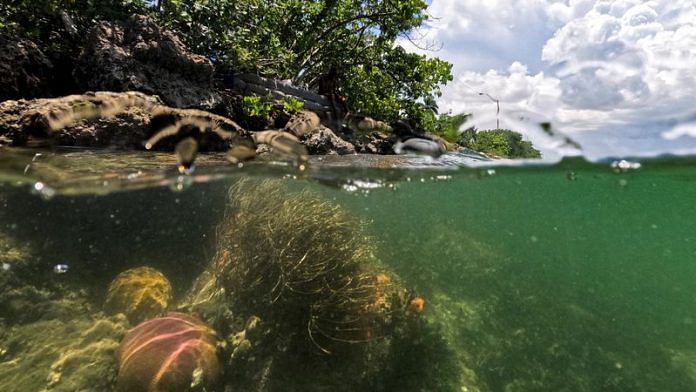Singapore: An alliance of nations said on Tuesday members would raise $12 billion to protect coral reefs from threats such as pollution and overfishing, but experts warned the funding would only be a drop in the ocean unless broader climate risks are addressed.
The International Coral Reef Initiative (ICRI) said it would secure public and private investment to help conserve and restore coral ecosystems, which sustain a quarter of the world’s marine species and more than a billion people.
“The functional existence of these critical ecosystems is at stake due to the climate crisis and a myriad of other anthropogenic stressors,” it said. “The window for protecting these ecosystems is closing rapidly.”
Coral reefs have come under increasing pressure as a result of rising marine pollution, destructive coastal development and fishing fleets.
But they are also suffering because of rising sea temperatures, which cause coral to expel colourful algae living inside them, a phenomenon known as “bleaching”.
Marian Wong, senior lecturer at the School of Earth, Atmospheric and Life Sciences at Australia’s University of Wollongong, said that although additional funding for protection and restoration would be “good news”, rising temperatures are the bigger risk.
“Threats are very grave, especially as we head into another El Nino,” she said, referring to the semiregular ocean water warming phenomenon. “We are expecting coral bleaching on a mass scale to occur again, probably February to March, unless we are very lucky.”
ICRI said it aims to “secure the future” of 125,000 square kilometres of shallow-water tropical coral reefs and double the areas under effective protection by the end of the decade.
It also vowed to “accelerate” restoration of damaged reefs using innovative new solutions.
David Booth, marine ecologist at the University of Technology Sydney, warned that restoration was no panacea, saying that it would be “unfathomably expensive” to do on a meaningful scale.
ICRI was launched in 1994 by Australia, France, Japan, Jamaica, the Philippines, Sweden, Britain and the United States. Its members now include 45 countries that represent three quarters of the world’s coral reefs.
“ICRI countries should be focused squarely on reducing greenhouse gas emissions,” said Terry Hughes, a coral expert at Australia’s James Cook University. “Ironically, Australia and Saudi Arabia are strong supporters of coral restoration ‘solutions’ because it buys time for fossil fuel industries to continue to pollute the atmosphere for as long as it’s profitable.”
(Reporting by David Stanway. Editing by Gerry Doyle)
Disclaimer: This report is auto generated from the Reuters news service. ThePrint holds no responsibilty for its content.



